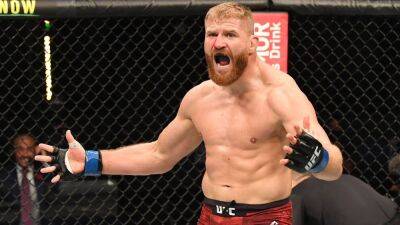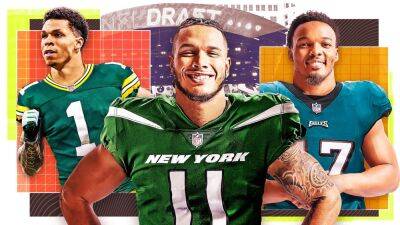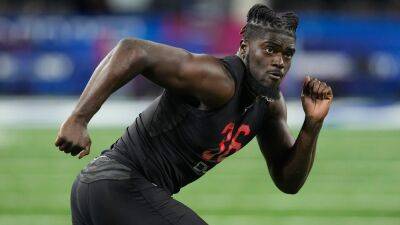Lottery picks and changing age limits: how to improve the NFL draft
The NFL draft sells hope. In fans’ imagination draft prospects are anything they want them to be. When the draft starts in Las Vegas on Thursday, fans can dream that their team is one pick, one draft class away from becoming a Super Bowl contender.
That is the kindest reading, the one that views the draft as a way to ensure competitive balance, of the league legislating parity. Another reading: it’s an exercise in wage suppression, giving as much money as possible to veterans at the expense of the young pups coming into the league. Some may say that it also serves as a way for the league and its franchises to exert control over new employees from the outset: they don’t get to choose where they’ll work or live; they’re sent to whatever outpost is dictated to them, their income decided by the rookie wage scale.
That imbalance has shifted somewhat over the last 18 months. College football is in a state of flux. The advent of Name Image and Likeness (NIL) and the option to transfer schools penalty-free have given student-athletes a degree of agency. Soon, college athletes could unionize. And if they do, the relationship between collegiate athletics and professional sports will change.
But the power still lies with the NFL and the colleges. At present, college football acts, in essence, as the NFL’s minor league system, but without any of the associated costs. That structure works for the schools and the NFL: The league gets to bring in ready-made stars, ones churned out by the college football machine; that machine has power because players have to stay in college for at least three years before turning professional.
The NFL’s idea of overhauling the process is having players taken to the draft night podium on boats rather




